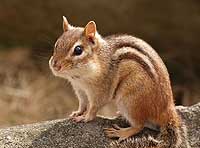Raccoons

The problem with raccoons is the diseases that they and their feces carry. Having raccoons in your workplace or living space is not only unsanitary and smells bad, but raccoon droppings are host to a number of diseases, including raccoon roundworm.
Raccoon Roundworm, or Baylisascaris Procyonis, is a parasite that can cause illness or death in humans. Furthermore, the eggs of the Baylisascaris procyonis(parasitic roundworm) are resistant to most disinfectants. The egg spores in the raccoon droppings are light and can become airborne, and people can breathe them in and become infected. Infection of humans can lead to larval parasite migration to the central nervous system. The eggs develop into the infectious form in 2-4 weeks, and can survive in the soil for several years. If humans or other mammals including birds inadvertently swallow the infectious form of the eggs, the larvae hatch out and move into the organs of the body. On rare occasions these larvae may cause serious eye disease, spinal cord or brain damage, or death. Raccoons also carry Giardia lamblia, a protozoan causing diarrhea associated with ingesting food or water contaminated by raccoon excrement. Trypanosoma cruzi is associated with raccoon excrement as are Rickettsia rickettsii, Leptospirosis,Histoplasmosis, and Salmonella.
If raccoons have occupied your attic or a storage area, it is very important to have the area professionally cleaned after the raccoons have been removed. It is best to have the proper personal protective equipment when cleaning feces of any kind! Also, it is best to have the area properly ventilated as with a negative pressure system. Serious health risks occur when inhaling spores from fecal matter. This is not a process that a home owner should handle. It is very critical that an assessment of the entire attic be made and that a complete remediation of the area be properly made by us working with your insurance company.













